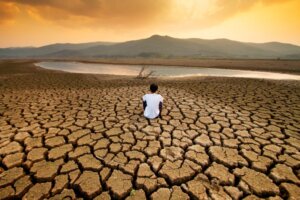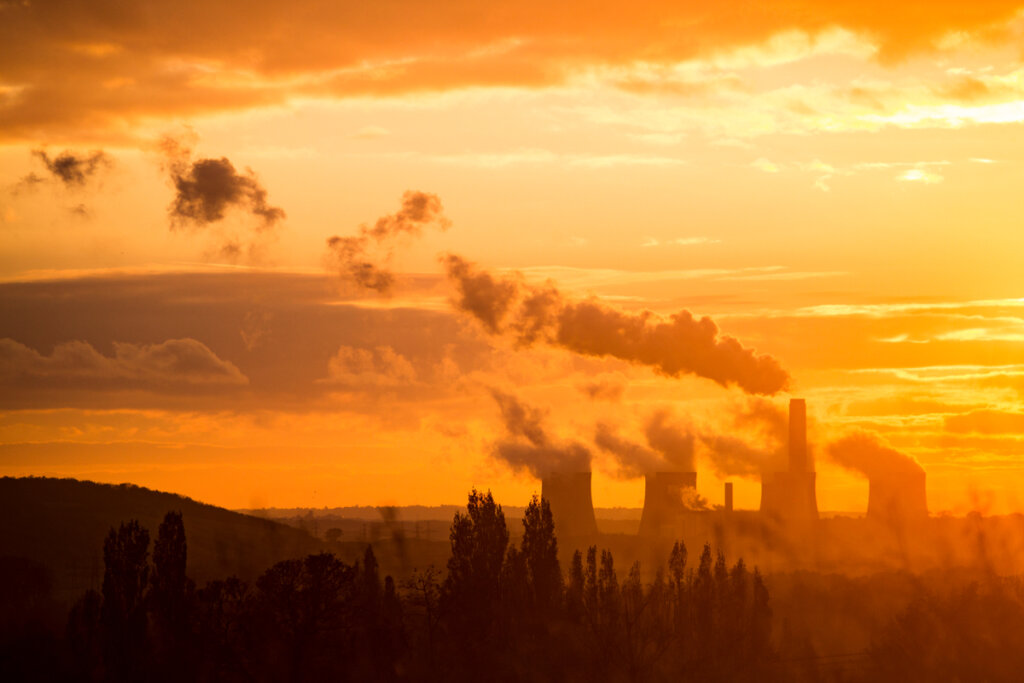The Impact of Climate Change on Our Mental Health

Climate change is affecting not only the ecosystems of our planet but also our physical and mental health. The more immediate effects of these changes in the mind are most clearly seen after natural disasters. For example, trauma, shock, post-traumatic stress disorder, feelings of abandonment, anxiety, and depression. These can lead to suicidal thoughts and risk behaviors (APA, 2021).
As a matter of fact, weather changes are no longer just a latent and imminent threat, but a settled and destructive reality with dire predictions for our future.
“The human symptoms of climate change are unequivocal and potentially irreversible and affect the health of populations around the world today” (Watts et al., 2017). In fact, it’s been estimated that between 2030 and 2050 there’ll be an increase of 250,000 deaths per year due to the impact of climate change.

How climate change affects our mental health
Some people are more vulnerable than others to the impact of climate change. These include children, the chronically ill, the elderly, people with cognitive deficiencies, pregnant women, and those with psychopathological disorders.
The effects of climate change can be direct or indirect and short or long-term. Their consequences can also be delayed and encompass disorders such as post-traumatic stress. They can even be transmitted to later generations (Cianconi, Betrò, and Janiri, 2020).
A review of 120 studies investigating extreme weather events such as heat, humidity, drought, wildfires, and floods concluded that the possible consequences of these on mental health are as follows:
- Psychological disorders.
- Worsening of mental health in people diagnosed with certain psychopathologies.
- Increase in psychiatric hospitalizations.
- Rising suicide rates.
The authors of this paper concluded that climate change is likely to affect mental health not only through direct exposure to traumatic climate-related events but also indirectly. For example, through poverty, unemployment, and homelessness.
Immediate effects
According to one report, 25-50 percent of victims of a weather disaster are at risk of adverse mental health effects. Also, this same report maintains that the mental health of more than 54 percent of adults and 45 percent of children are seriously threatened. In fact, after these events, distress reactions have been observed, which include the following:
- Insomnia
- Irritability.
- Increased substance use.
- Depression.
Although these reactions tend to be temporary, in many cases they can persist. This is more apparent in people who don’t ask for help and turn their backs on their emotions to try to hide their trauma. In these cases, the impact on mental health is more significant.
Gradual effects
Our mental health doesn’t only suffer as a result of natural disasters, but also because of the gradual changes that our planet is undergoing. These eventually begin to affect our mental health.
In one study, rising temperatures were found to be associated with an increased risk of death from exhaustion, assault, injury, and suicide. Other research has suggested a connection between extreme heat and increased irritability, aggressiveness, and even violence.
When people become uncomfortably hot, their temper, irritability, and the likelihood of physical aggression and violence increase.
As a matter of fact, cities and regions with higher temperatures tend to experience more violent crime than cooler regions. This is even after taking into account sociocultural factors such as age, race, poverty, and culture (Plante and Anderson, 2017).
Accordingly, crime and aggression rates appear to tend to increase during the hot summer months, suggesting a link between aggressive behaviors and temperatures (Haertzen et al.; Cohn et al., 2004).
Climate change affects our mental health in multiple ways. Research claims that droughts, floods, rises in sea levels, ambient temperature rises, and other consequences of climate change can lead to increased psychological distress through many mediators. For example, economic stress, stress, decrease in social capital, and traumatic events, among others.

What can be done?
At the government level, adequate treatment facilities can be built to manage mental health problems. In addition, promoting positive mental health is another way of mitigating psychological distress due to climate change (Padhy et al., 2015).
On a personal level, it’s a good idea to increase your levels of resilience and, according to the APA, prepare for extreme weather events. This can help you better manage your ongoing emotional responses to the threats of climate change. You might want to include the following:
- Make emergency plans for your home.
- Prepare an emergency kit.
- Build strong social networks to help with disaster planning and share resources.
Pro-environmental lifestyle changes can help lessen the impact of environmental changes by improving psychological well-being in the face of climate change. One study found that pro-environmental actions predict higher levels of life satisfaction and greater subjective well-being. Among the apparently beneficial activities were the following:
- Grow your own food.
- Eat organic food.
- Talk to children about environmental issues.
- Avoid excess packaging in purchases.
Finally, the impact of climate change on life on the planet doesn’t only affect ecosystems and physical health, but also our mental functioning. Indeed, environmental change can greatly impact the way we experience our existence.
All cited sources were thoroughly reviewed by our team to ensure their quality, reliability, currency, and validity. The bibliography of this article was considered reliable and of academic or scientific accuracy.
- American Psychiatric Association. How Extreme Weather Events Affect Mental Health. https://psychiatry.org/patients-families/climate-change-and-mental-health-connections/affects-on-mental-health
- American Psychological Association [APA]. (2021). Urgent need to address mental health effects of climate change, says report. https://www.apa.org/news/press/releases/2021/11/mental-health-effects-climate-change
- Charlson, F., Ali, S., Benmarhnia, T., Pearl, M., Massazza, A., Augustinavicius, J., & Scott, J. G. (2021). Climate change and mental health: a scoping review. International journal of environmental research and public health, 18(9), 4486.
- Cohn, E. G., Rotton, J., Peterson, A. G., & Tarr, D. B. (2004). Temperature, City Size, and the Southern Subculture of Violence: Support for Social Escape/Avoidance (SEA) Theory 1. Journal of Applied Social Psychology, 34(8), 1652-1674.
- Cianconi, P., Betrò, S., & Janiri, L. (2020). The impact of climate change on mental health: a systematic descriptive review. Frontiers in psychiatry, 74.
- Haertzen, C., Covi, L., Buxton, K., & Richards, H. (1993). Seasonal changes in rule infractions among prisoners: A preliminary test of the temperature-aggression hypothesis. Psychological reports, 72(1), 195-200.
- Padhy, S. K., Sarkar, S., Panigrahi, M., & Paul, S. (2015). Mental health effects of climate change. Indian journal of occupational and environmental medicine, 19(1), 3.
- Parks, R. M., Bennett, J. E., Tamura-Wicks, H., Kontis, V., Toumi, R., Danaei, G., & Ezzati, M. (2020). Anomalously warm temperatures are associated with increased injury deaths. Nature medicine, 26(1), 65-70.
- Plante, C., & Anderson, C. A. (2017). Global warming and violent behavior. APS Observer, 30.
- Schmitt, M. T., Aknin, L. B., Axsen, J., & Shwom, R. L. (2018). Unpacking the relationships between pro-environmental behavior, life satisfaction, and perceived ecological threat. Ecological economics, 143, 130-140.
- Watts, N., Amann, M., Ayeb-Karlsson, S., Belesova, K., Bouley, T., Boykoff, M., … & Costello, A. (2017). The 2017 Report of The Lancet Countdown on Health and Climate Change: From 25 years of inaction to a global transformation for public health. The Lancet, 391, 581-630.
- Watts, N., Adger, W. N., Agnolucci, P., Blackstock, J., Byass, P., Cai, W., … & Costello, A. (2015). Health and climate change: policy responses to protect public health. The lancet, 386(10006), 1861-1914.
This text is provided for informational purposes only and does not replace consultation with a professional. If in doubt, consult your specialist.








